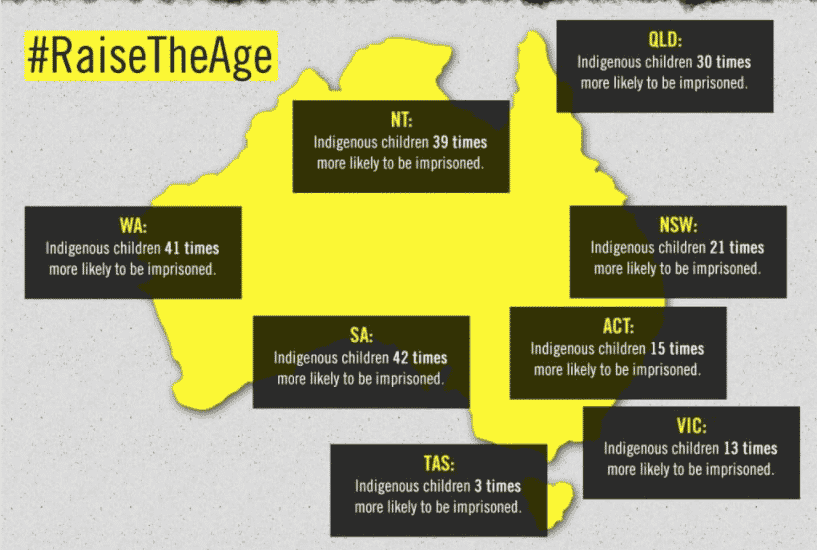Despite some early improvements, the state of Australia’s juvenile detention system remains deeply flawed. Our devastatingly low age of criminal responsibility is stunting children’s development, and half of all youth detainees in Australia are Aboriginal and Torres Strait Islander people.
Australia’s current minimum age of criminal responsibility is just 10 years old. The majority of experts and advocates agree that this standard is irresponsible and harmful. The UN currently recommends a minimum age of 14.
Raising the Minimum Age of Criminal Responsibility
The Australian Rights Commission notes that our minimum age “is low compared with many other countries.” RACGP Aboriginal and Torres Strait Islander Health Medical Advisor and GP Dr Tim Senior agrees: “it seems surprising that there is even any debate about whether children between 10 and 13 should be imprisoned at all – it’s not a criminal, but a health issue.”
There are many reasons to raise the age. Contemporary neuroscience shows that the human brain doesn’t stop developing fully until the age of 25 – 10-year-olds do not have the neurological maturity to be held responsible for criminal decisions.
Putting young children through a criminal justice system is also both unhelpful and actively damaging. Most children that young would respond better to alternative methods of rehabilitation; not jail time and court processing. The ARC also points out that young children are more likely to accept plea bargains, give false confessions or otherwise fail to accurately participate in court proceedings.
Children under 14 who enter the justice system are more likely to come from traumatic or disadvantaged backgrounds, meaning criminal punishment is unhelpful in treating the root cause of their actions. Children under 14 in the justice system are more likely to have underlying trauma or an undiagnosed disability, and come from poorer families. Those from remote areas are six times more likely to end up in detention than children from cities.
There’s only been one study done in Australia on the correlation between Foetal Alcohol Spectrum Disorder (FASD) and criminal detention – in WA’s only youth detention centre. But its results were damning: 89% of children assessed had a severe cognitive impairment, and 36% had foetal alcohol spectrum disorder. It’s the highest rate of FASD in a prison anywhere in the world.
Thankfully, youth detention rates have fallen in the past five years in almost every jurisdiction. Only Queensland and the Northern Territory have seen increased rates, in 2020-2021. Unfortunately, the Northern Territory has one of the worst track records in juvenile justice in the country.
Indigenous Overrepresentation in Youth Detention
The NT has the highest disparity in detention of Indigenous vs non-Indigenous youth. 94% of children 10 and over are Indigenous in NT detention – making the Indigenous rate of youth detention in the territory 31 times the rate for non-Indigenous youth.
The NT also came under harsh criticism last year for amendments to the Criminal Act that were rushed through parliament. The reforms passed with bipartisan support, and the then-Gunner Labor Government said they ushered in the “toughest ever” punishments for young people. Ironic, for a government that put so much effort into protecting its Indigenous population from COVID.
Still, disproportionate rates of Indigenous youth detention plague the entire country. Young Indigenous Australians (10-17yo) were 20 times as likely as their non-Indigenous peers to be in detention on an average 2021 night. Aboriginal and Torres Strait Islander children are younger when they enter the justice system, and more likely to come from socioeconomically disadvantaged backgrounds.

As Cheryl Axleby, co-chair of Change the Record, asserts, “This paints a really clear picture of exactly how our criminal legal system is working – it’s targeting poor kids and black kids. On top of that, First Nations kids are more likely to be targeted and dragged into the criminal legal system when they are extremely young. It is outrageous that Aboriginal children in primary school are being arrested by police.”
Follow Maddie’s journalism on Twitter.
Sign Up To Our Free Newsletter